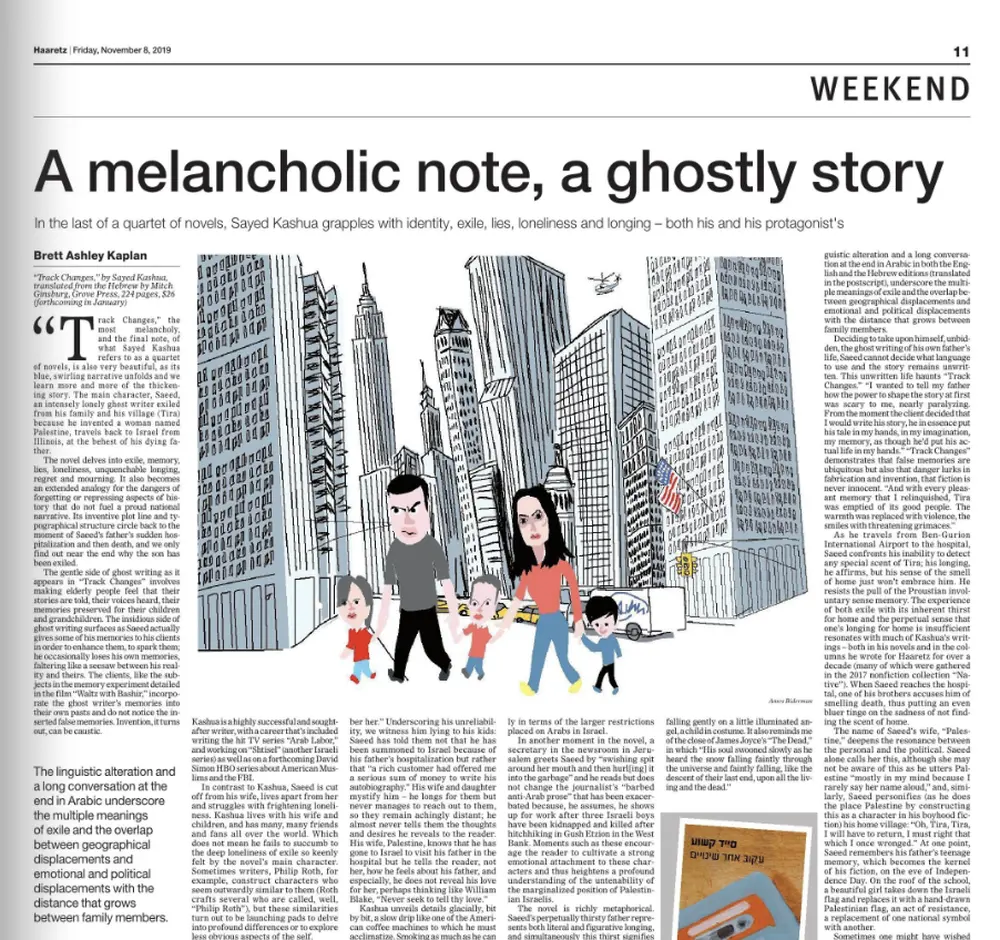
Professor Brett A. Kaplan has published a review of Sayed Kashua's Track Changes (2020). The novel is the fourth in what the author views as a quartet that also includes Dancing Arabs (2002), Let it Be Morning (2004), and Second Person Singular (2010). It presents the struggles of a melancholic protagonist who grapples with traumatic memories, questions of identity, and difficult relationships when he suddenly returns to his birthplace--Tira--after learning that his estranged father is dying. The novel raises questions about the consequences of false memories and the ways in which personal and collective narratives of identity often rely on the repression or distortion of unruly individual memories and historical perspectives. In her review, "A melancholic note, a ghostly story," Professor Kaplan discusses the novel's treatment of memory as troubling, unreliable, and--paradoxically--nonetheless vital. She examines Kashua's fictionalized use of recognizable biographical details and compares this technique to similar uses of apparent alter-egos by authors such as Phillip Roth. Kaplan also delves into Kashua's use of language and textual style and what they contribute to the project of the novel.